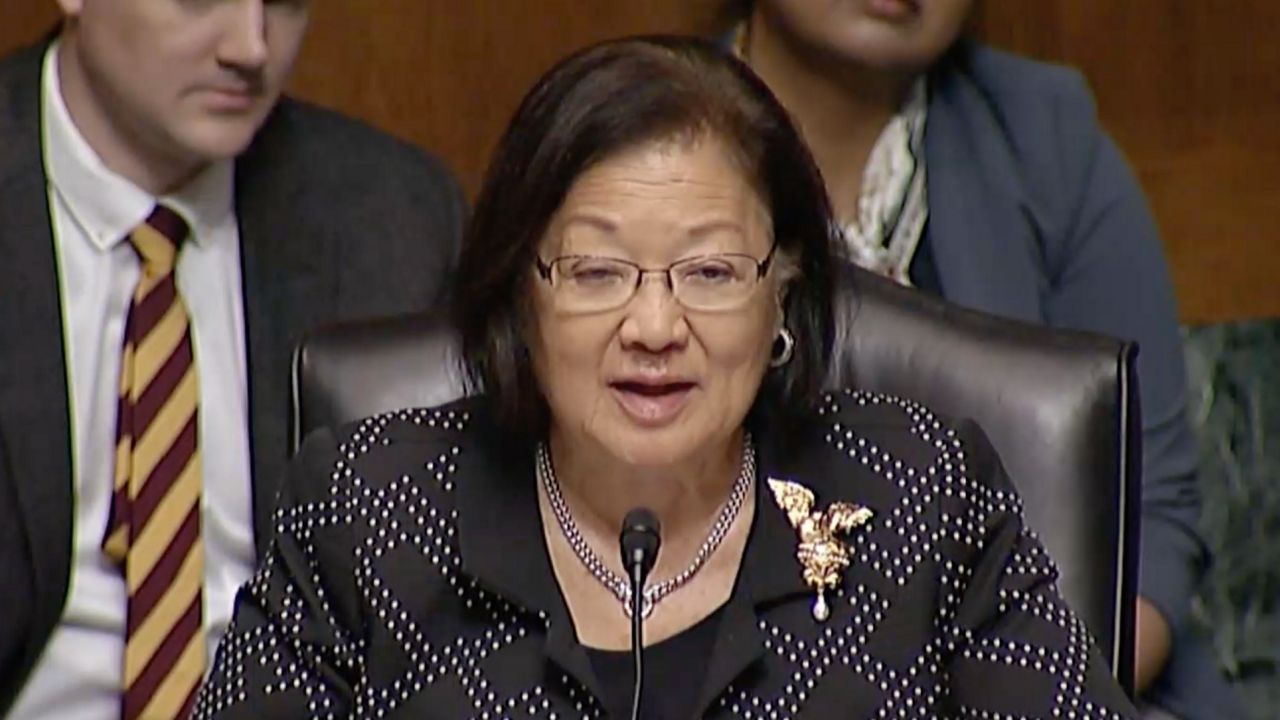U.S. Sen. Mazie Hirono, D-Hawaii, joined U.S. Rep. Matt Cartwright, D-Pa., in introducing new legislation that would enable public sector employees to unionize in states that do not currently allow it.
Under the bicameral Public Service Freedom to Negotiate Act, government workers would be guaranteed the right to organize, act concertedly and bargain collectively.
“Private sector workers are guaranteed the right to organize under federal law, so too should public sector workers,” said Hirono said. “The Public Service Freedom to Negotiate Act will help ensure every public employee has their voice heard in the workplace, protecting their rights to organize for fair wages, benefits, and working conditions. I’m proud to lead this legislation to preserve and strengthen the right to unionize for public sector workers who teach our children, protect our safety, and keep our communities moving forward.”
Currently, there is no federal law that explicitly asserts the right of public sector workers to join a union and collectively bargain for wages, benefits and working conditions.
In Hawaii, Chapter 89 of the Collective Bargaining in Public Employment Act recognizes the right of public employees to organize and engage in collective bargaining. It also sets for a collective bargaining process for public employers and unions representing public employees.
In 2022, there were over 19 million public workers across the country.
In touting his commitment to maintaining collective bargaining rights for all Americans, Cartwright noted the long tradition of union activity in his Northeastern Pennsylvania district.
“Strong public and private sector unions built the middle class in our country,” he said. “With all of the progress workers of all stripes have made, now is not the time to turn back the clock on fair pay and workplace protections when struggling families need it the most.”
The measure gives the Federal Labor Relations Authority the authority to determine whether a state, territory or locality provides public employees and supervisors the right:
To form, join, or assist a union; to bargain collectively; and to engage in other concerted activities for the purpose of collective bargaining or other mutual aid (including the filing of joint, class or collective legal claims) or protection;
To have their union recognized by their public employer if the union is freely chosen by a majority of employees, to bargain with the employer through the union, and to commit their collective-bargaining agreement to writing;
To be free from forced recertification elections of their already-recognized representative and decertification of their chosen representative within one year of an election or the expiration of a valid collective bargaining agreement;
To have a procedure for resolving impasses in collective bargaining culminating in binding arbitration; and
To authorize employers to deduct fees to the union from their payroll when employees consent.
As the lawmakers note, the FLRA approach gives states wide flexibility to write and administer their own labor laws, provided they meet this minimum standard. If a state substantially provides for the rights and procedures laid out in the bill, that state is unaffected by this bill. However, states that do not provide or do not fully provide for these rights will be compelled to meet these basic labor standards.
According to the bill, the FLRA must issue regulations within one year of the bill becoming law and can enforce the law through federal court.
The bill also creates a private right of action to enforce compliance in federal court but only if the FLRA has not yet filed suit seeking relief for the same issue.
The introduction of the measure was hailed by a wide swath of union leaders nationwide.
“With a seat at the table, we can fight for fair pay, better benefits, and safer working conditions—all of which are critical for recruiting and retaining qualified people to work in public service,” said Lee Saunders, president of the American Federation of State, County and Municipal Employees. “During a time when many public services face drastic staffing shortages and turnover, we must identify ways to strengthen this workforce. This crucial legislation will help do this and more.”
International Brotherhood of Teamsters general president Sean O’Brien said his union also endorses the legislation.
“These are the workers that make our cities and states run and we owe it to them to protect their right to organize and ensure they have a safe and dignified environment where they work,” O’Brien said.



